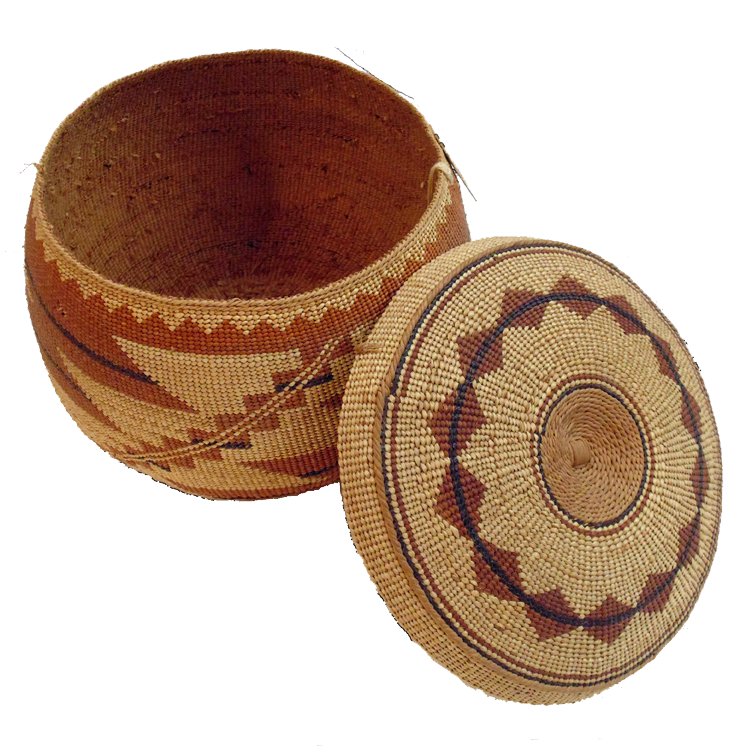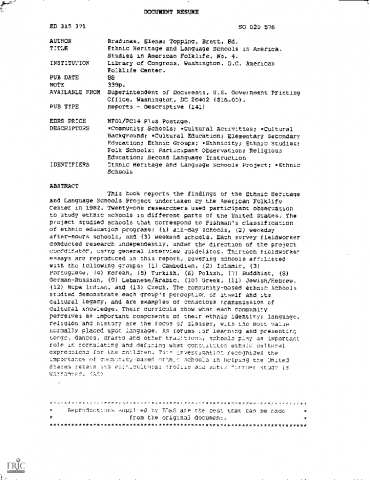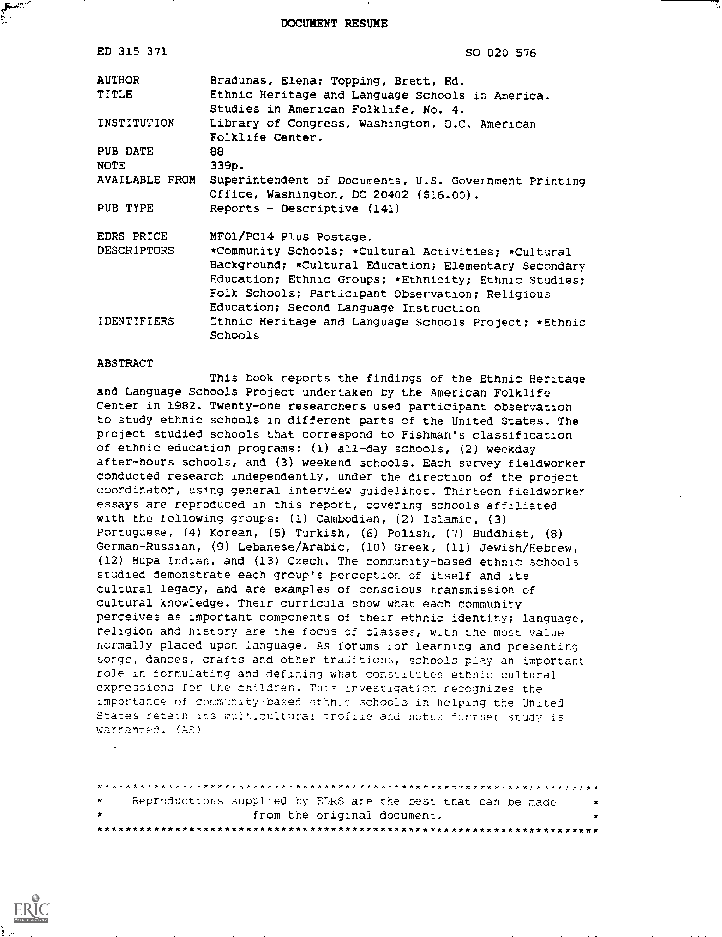Ethnic Heritage and Language Schools in America. Studies in American Folklife, No. 4
This book reports the findings of the Ethnic Heritage and Language Schools Project under taken by the American Folklife Center in 1982. Twenty-one researchers used participant observation to study ethnic schools in different parts of the United States. The project studied schools that corespond to Fishman's classification of ethnic education programs:(1) al-dayschols, (2) weekday after-hours schools, and (3) wekend schools. Each survey fieldworker conducted research independently, under the direction of the project coordinator, using general interview guidelines. Thirteen fieldworker essays are reproduced in this report, covering schools affiliated with the following groups: (1) Cambodian, (2) Islamic, (3) Portuguese, (4) Korean, (5) Turkish, (6) Polish, (7) Buddhist, (8) German-Russian, (9) Lebanese/Arabic, (10) Greek, (1) Jewish/Hebrew, (12) Hupa Indian, and (13) Czech. The community-based ethnic schools studied demonstrate each group's perception of itself and its cultural legacy, and are examples of conscious transmission of cultural knowledge. Their curricula show what each community perceives as important components of their ethnic identity; language, religion and history are the focus of clases, with the most value normally placed upon language. As forums for learning and presenting songs, dances,crafts and other traditions, schools play an important role in formulating and defining what constitutes ethnic cultural expressions for the children.This investigation recognizes the importance of community-based ethnic schools in helping the United States retain its multicultural profile and notes further study is warranted.Provenance: Contributed to Sípnuuk by Sípnuuk Digital Library Staff, Administration and Consultant in association with work on AFRI Food Security Project funded by USDA 2012-68004-20022


